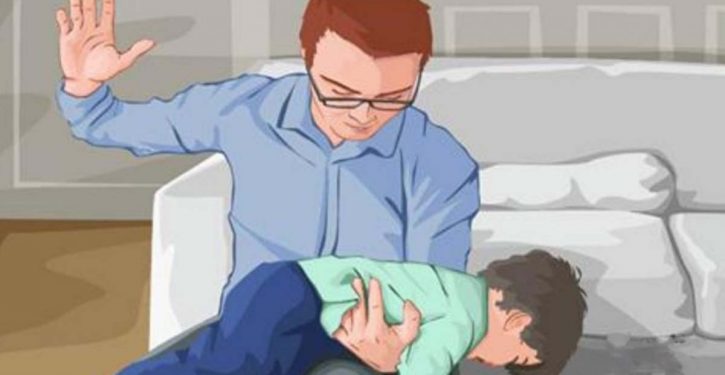Despite all the warnings of experts about the consequences of spanking on children, this practice is common among some parents. The question of whether to spank or not sparks a lot of interest and creates a lot of debate in our society. But regardless of the arguments that some put forward to justify the usefulness of spanking, studies continue to say that corporal punishment causes long-term harm to children.
A study published in the American Journal of Family Psychology, based on five decades of research involving 160,000 children, found that spanking was bad for children.
Spanking: useful or harmful?
As reported by Forbes, researchers at the University of Austin, Texas and the University of Michigan have found that spanking children are the ones who are most likely to challenge their parents and that, as and when they grow up, its effects could be manifested in the form of antisocial behavior, aggression as well as cognitive difficulties.
The study also found that for parents who want an immediate result, spanking does not help. Compared to other methods of communication with children, spanking is the least effective. In many cases, spanking further aggravates the child's behavior. Researcher Elizabeth Gersoff explained that this form of discipline is actually quite detrimental.
The study looked at adults who were spanked as children and the results were disturbing. The more these adults were spanked, the more likely they were to exhibit antisocial behavior or mental health problems. They were also more likely to suffer from anxiety and depression.
More importantly, the researchers say that spanking also has the same negative consequences for children as physical abuse.
It is important to know that there are always ways to communicate with your child without violence.
8 tips for successful education for your child:
1. Try to stay calm. Spanking often occurs when you feel overwhelmed. So when you feel upset about something your child has done, take a deep breath and regain control. You will feel much better and more able to handle the situation.
2. Teach. Children learn quickly. So instead of losing your temper, stay in control and teach them how to behave in a particular situation.
3. Be specific. Children learn better when adults are more accurate. Stop shouting about things you do not want them to do. Instead, have clear and direct instructions and show them how to do it.
4. Eliminate the problem. If your child refuses to listen to you, eliminate the problem. If he keeps throwing his toys, get them back! This makes him understand that as long as he refuses to listen to you there will be consequences.
5. Give the example. You can not tell a child not to do something and then turn around and reproduce the same behavior. They learn better by what you show them than by what you say. So, be a good example.
6. Say no. Do not be afraid to say no to your child when he is not behaving well. You may feel that you are repeating the word a lot, but by dint of hearing it, it will begin to associate the word with a reprehensible act.
7. Persevere. You are a parent whose responsibility is the education of his children, so you must continue to train your children and especially do not give up because perseverance must be your motto.
8. Be consistent. They will not learn if you allow them to circumvent the rules from time to time. They will not even take you seriously when you forbid them to do things. The rules are permanent!
It is important to take into consideration that your children are small beings in the exploration phase, they do not necessarily know the difference between right and wrong and it is up to you to teach them. And do not expect them to be perfect, they will learn through their mistakes!


